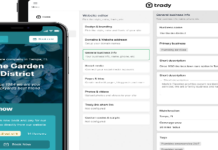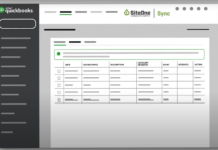GPS for vehicle tracking is no longer the whiz-bang technology that excited many landscape and lawn service providers back at the turn of the century. Most of you know by now what GPS is and what it means to route service businesses. GPS fleet-tracking uses global positioning systems via satellites to track vehicles and drivers in real time. Working in tandem with internet-based software, the GPS hardware installed in the vehicle gives users access to real-time updates and alerts using data that is sent directly from the vehicle to the software operator.
Benefits of the technology to organizations include making sure vehicles are operating optimally and that drivers are being safe and responsible. Adding more capabilities since its earliest days, GPS mobile fleet management continues to evolve beyond being a simple vehicle/employee tracking solution. Today’s more sophisticated solutions negate some of the most persistent myths attached to the technology.
GPS vehicle tracking is not a product that will automatically make your business run better. In most cases, it’s a service to which you subscribe and that provides you with vital field-related data that you can access and use to make decisions to make your company run more efficiently. Increasingly, organizations (and even drivers) are relying on graphic “dashboards” to organize and display this data. What you can measure, you can manage.
Also, GPS tracking is not all about monitoring your employees’ every move while they are in the field with a service vehicle. That said, it will tell you this via real-time monitoring or by reviewing a service history. But, if that’s the primary reason you are using or considering a mobile fleet management service, you are looking at today’s systems much too narrowly.
GPS fleet management is a popular business tool that when used intelligently can:
- Alert you to where your vehicles are at all times.
- Route vehicles and drivers more efficiently.
- Encourage safe driving practices.
- Reduce vehicle theft.
- Control labor costs.
- Help control driver overtime.
- Improve on-time service delivery.
- Improve response times to emergencies or last-minute requests.
- Lower fuel costs.
- Identify maintenance and equipment issues.
You won’t appreciate all of these benefits immediately, but only after you become experienced with your system. While the installation of GPS hardware is simple, to get the full benefits of a subscription service, you will need (and greatly appreciate) help with its setup and ongoing support. Choose your vendor carefully.
Todd Ewing, director of marketing of Fleetmatics, describes mobile fleet management as a content tool that helps the owners of service companies, such as landscape and lawn care companies,”to identify the gaps” in their service delivery.
“A lot of the systems, when businesses first start using them, were very much focused on dots on a map, showing where everybody was,” adds Ewing. “That remains an important part of any solution. But there has been a lot done since then with the technology, improving the design of the software in general — like getting people to look at their businesses’ key performance metrics, building out visual dashboards and using visual replays.”
Continues Ewing: “We’ve seen more and more companies taking a proactive approach to using the information provided by the software.”
Since the introduction of the first GPS vehicle tracking systems a generation ago, hardware costs and wireless data pricing have both dropped, making these services affordable to more businesses. Fleetmatic’s Ewing says the benefits of a mobile fleet management start to make sense for a company with no fewer than five service vehicles.
Fleetmatics, with approximately 35,000 customers and 709,000 subscribed vehicles worldwide, is one of the largest companies offering mobile fleet management solutions. There are many others.
Approach implementing a GPS fleet management solution like you would any other important business expense — by not rushing in and making snap decisions. For example, would it be smarter for you to buy or lease a solution?
Also, obviously, not all GPS systems are created equal or will provide the precise information you may be seeking. Beyond that, experienced users know the relationship with the provider over the course of the service contract is where value truly lies … not the technology itself.
As mentioned in the opening paragraph of this short piece, GPS fleet management tracking has been used for several decades by commercial operations. Many reputable third-party sources have documented how it has increased their productivity and reduced their operational costs.











![[VIDEO] Dickies®: Discover Workwear That’s Anything But Uniform](https://turfmagazine.com/wp-content/uploads/2023/06/1647663814-4b1a2a7742790a9b1e97a3b963477850192e1d6a9dfba9b07214a77bae25d6e3-d-218x150.jpg)






























![[VIDEO] Dickies®: Discover Workwear That’s Anything But Uniform](https://turfmagazine.com/wp-content/uploads/2023/06/1647663814-4b1a2a7742790a9b1e97a3b963477850192e1d6a9dfba9b07214a77bae25d6e3-d-324x160.jpg)